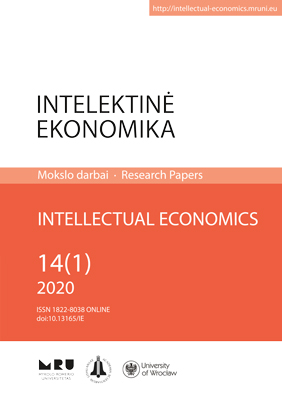PROBLEMS OF FINANCIAL MARKET DEVELOPMENT IN CENTRAL ASIA (ON THE MODEL OF KAZAKHSTAN)
PROBLEMS OF FINANCIAL MARKET DEVELOPMENT IN CENTRAL ASIA (ON THE MODEL OF KAZAKHSTAN)
Author(s): Kulyanda NURASHEVA, Darikul A. Kulanova, Gulzhanar I. Abdikerimova, Aziza Mergenbayeva, Ismailbek I. SHALABAYEVSubject(s): Financial Markets
Published by: Mykolas Romeris University
Keywords: Central Asian countries; competitive; banking sector; financial market; stock exchange;
Summary/Abstract: This article is devoted to the development of the financial market in Central Asia. The economic situation in the states of the region and their competitiveness are also considered. The study used the IMF, WEF, and WB databases, as well as statistics of the EAEU countries. The authors used logical conclusions, the selection of necessary information, and systems analysis when considering the business environment and state regulation measures in the countries of the region. It is noted that the banking sector of Kazakhstan is the most integrated one into the global financial system. Uncertainty in the development of banks in Kyrgyzstan, the isolation of the banking sector in Turkmenistan, and the dependence of credit institutions in Uzbekistan and Tajikistan on administrative intervention are presented. The rates of competitiveness of the financial markets of Central Asian countries are very low – even Kazakhstan, with a fairly developed market of securities, is in 114th place among the 144 countries of the world. Legislation regulating the operation of the stock markets of the Central Asian countries has not yet been formed, Kazakhstan and Kyrgyzstan do not meet international standards, and Tajikistan and Turkmenistan do not officially have stock exchanges. The example of Kazakhstan shows that the capitalization of the stock market is growing, and the stock market ecosystem has been built. The placement of shares of national companies on the London Stock Exchange allowed for the increase of capital, but small trading volumes, an insufficient number of financial instruments, and a limited number of investors hinder the development of the domestic stock market. It is proposed to involve local business structures, enterprises, and the population in investing in socially significant projects through the issuance of municipal bonds.
Journal: Intelektinė ekonomika
- Issue Year: 14/2020
- Issue No: 1
- Page Range: 5-30
- Page Count: 26
- Language: English

